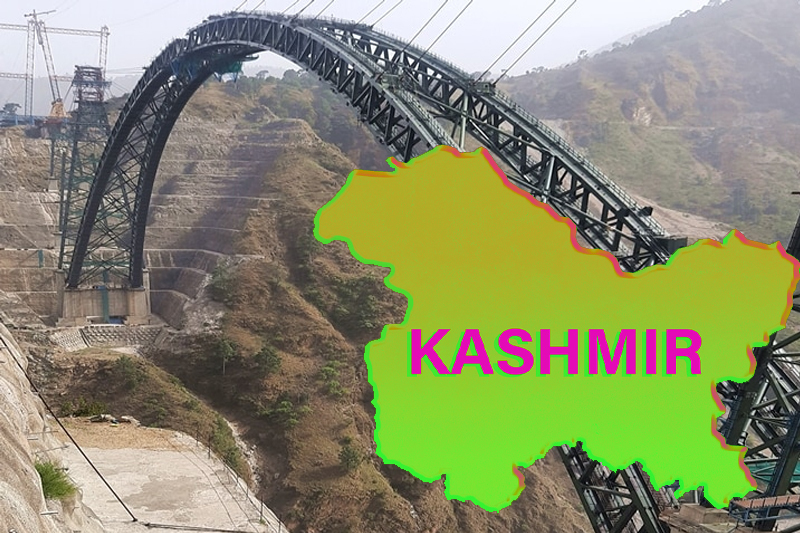
Chenab Bridge: World’s highest railway bridge to open in Kashmir soon
Considered an engineering marvel, an arch bridge over the Chenab River in Indian-administered Kashmir will soon connect the remote region with the country’s vast railway network, providing all-weather connectivity. A large part of the valley gets cut off from the rest of India due to heavy snowfall during winters.
The 1,315-metre-long bridge is taller than the Eiffel Tower in Paris, standing at an incredible height of 359 metres from the bed of the river. Constructed at a cost of $168 million, it is part of the Udhampur-Srinagar-Baramulla Rail Link project (USBRL), which plans to connect the disputed region’s main city of Srinagar with the rest of India through rail networks.
The Chenab Bridge is built in an area susceptible to high seismic activity. The rough terrain also encounters harsh weather conditions and frequent landslides. While inspecting the completion of the bridge in March, Indian Railway Minister Ashwini Vaishnaw acknowledged that it was the most difficult engineering challenge for the department.
Keep Reading
It’s a much-delayed project as work on it started in 1999. Nevertheless, the railway connectivity to Srinagar is expected to be completed by the end of this year or early 2024, the minister said. The 119 km-long project encompasses 38 tunnels and 931 bridges, having a combined length of 13 km.
According to official documents, the bridge – made of 28,000 tonnes of steel – is designed to effectively withstand high-magnitude earthquakes and strong winds. Prior to its construction, engineers involved had to build a 400-metre-long tunnel and a 26 km-long approach road to reach the site of the bridge.
The record-breaking project took two decades, with hundreds of engineers and thousands of workers. Currently, there is no direct rail network between Kashmir Valley and mainland India. The new rail bridge will link the valley with Jammu’s Katra, dropping the journey time between Katra to Srinagar by five to six hours.
The only road connectivity between Kashmir and the rest of India is the Srinagar-Jammu highway which often gets blocked by landslides, avalanches, and heavy snowfall during winters. Traffic on the route gets stuck for a number of days, affecting both people and trade. Moreover, the road is also quite vulnerable to accidents.




